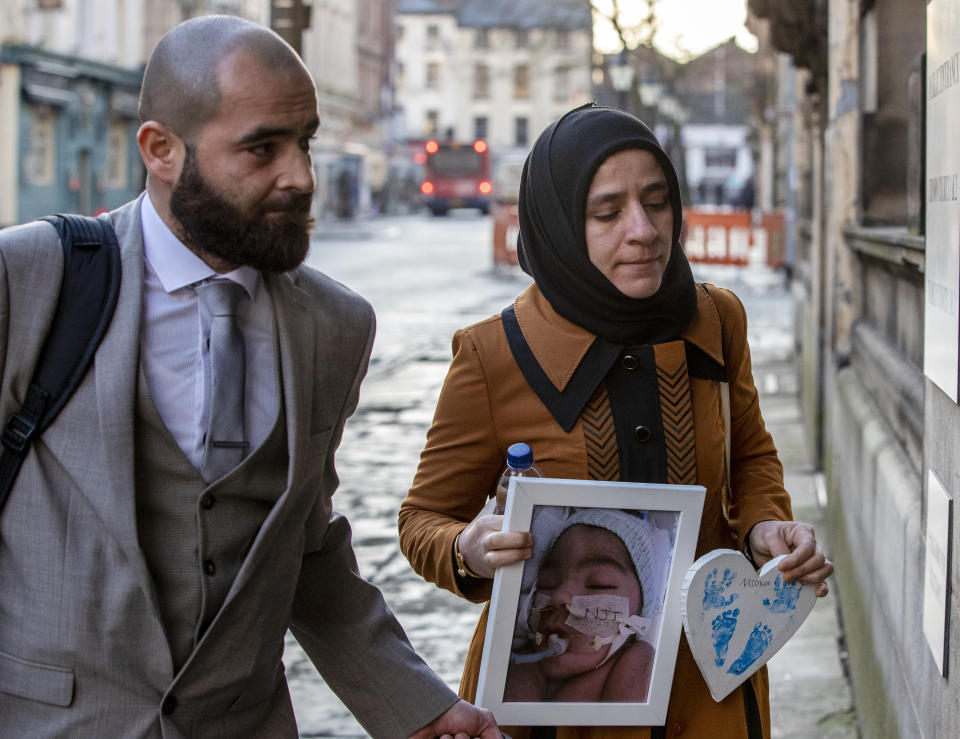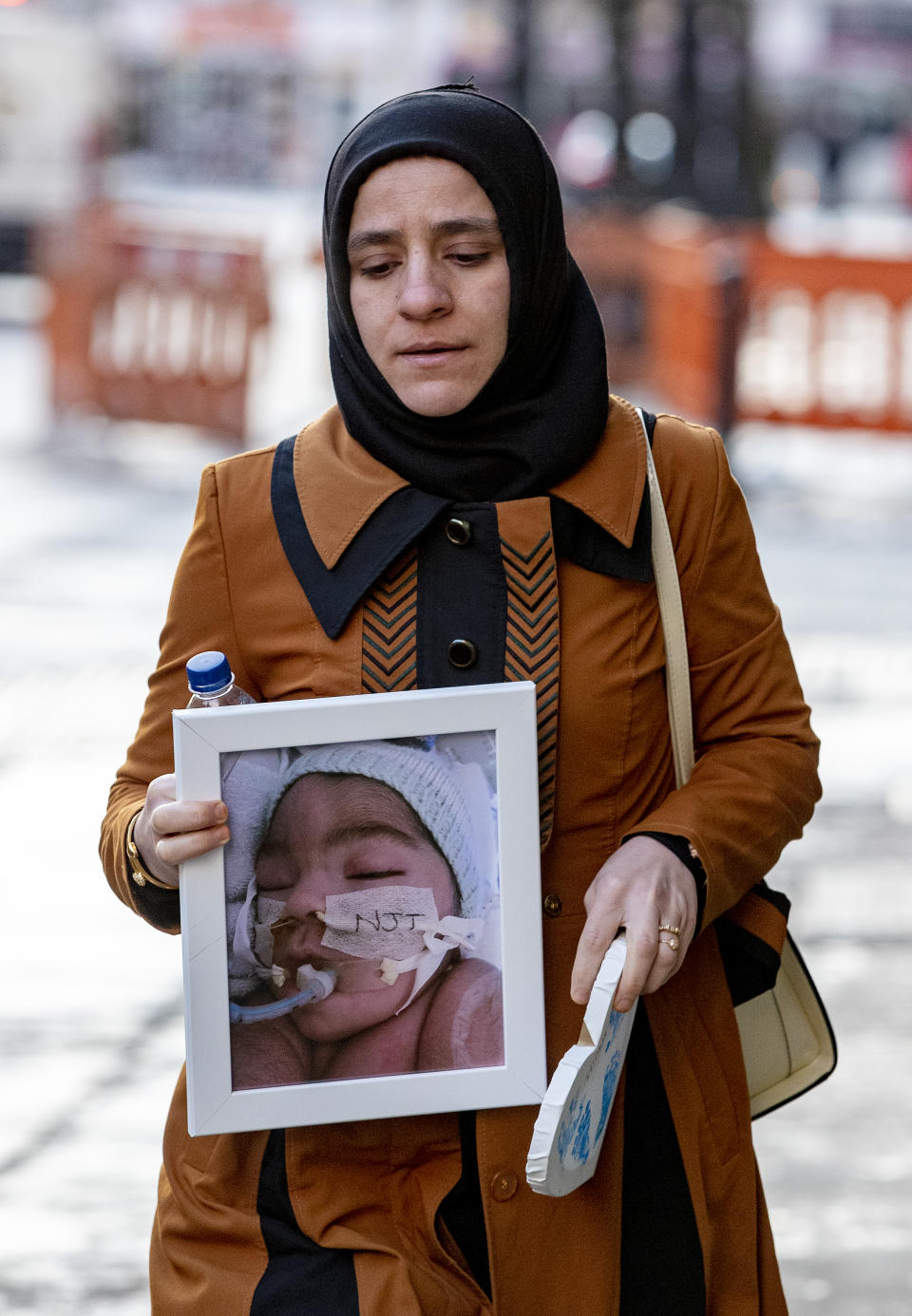Four-month-old boy's life support can be switched off despite parent's pleas, judge rules

Doctors can remove life support for a brain-damaged baby following a legal battle, a judge has ruled.
Four-month-old Midrar Ali was seriously injured when the umbilical cord came out ahead of his birth and he was starved of oxygen.
St Mary’s Hospital in Manchester has argued Midrar is brain dead and said his ventilation should be stopped for a “dignified death”, while his parents wanted treatment to continue and said he had shown “signs of life”.
High Court judge Mrs Justice Lieven has ruled in favour of the hospital.
Handing down judgment on Tuesday morning, she said the issue she had to decide was whether Midrar is dead, according to death by neurological criteria (DNC) as set out in clinical guidance.
She said: “Sadly, I have no doubt that Midrar is brain stem dead and meets the DNC criteria. The medical evidence is both clear and consistent.”
Those tests were “entirely supported” by other evidence that there was no electrical activity in the brain and the stem structure was “fundamentally undermined” which she said was “undoubtedly irreversible”.
“It is perfectly understandable that the parents should cling to hope by pointing to Midrar’s movements, including chest movements,” she said.

“However, all four consultants who gave evidence said there was an obvious and well-known reason for these movements, namely spinal cord reflexes.”
She said Midrar has received “expert care” from hospital staff “in the most difficult of condition” and this appeared to be why his heart and organs still functioned.
The hospital’s trust argued in court last week that three tests, including one carried out independently, showed Midrar has brain stem death - which they argued means the child is dead.
It said that to keep him under treatment would be “undignified” and applied to the Family Division of the High Court to have a judge make a ruling on whether they can end his life support.
But Midrar’s father, Karwan Ali, 35, a biomedical scientist, told the hearing in Manchester that he and and his wife Shokhan Namiq, 28, had felt pressured by the hospital to end his support.
He claimed a “right to defend” his son, and said: “I am holding a rope of hope that burns in my hand every time I see Midrar, but why do the hospital and consultants keep taking the hope from us?”
He added: “One of the consultants said there is only one door that Midrar can get out.
“It meant there was no choice but to take the ventilator off and if Midrar cannot open the door himself then they will help him open the door.
“We were saying from the beginning we had a feeling that Midrar is not dead. In fact if Midrar is dead then where is the death certificate?

“I kept showing them signs of life. As a biologist I have never known a dead body, a dead person, who could live beyond four months.
“Circulation and heart regulation and breathing – these three are controlled by the brain stem.
“If I was not a scientist, Midrar would have been dead or, I am sorry to say, killed in the first few days of his life, but I kept researching what was going on and I knew what they were doing was not correct.”
Midrar opened his eyes after being circumcised earlier this month, but the hospital said this was an involuntary nerve reaction as his brain cannot send signals to his body.
Redness on Midrar’s body and neck, as well as swelling, were all involuntary reactions, the hospital argued, and not triggered by the brain - but Mr Ali insisted they were, adding that the boy’s heart rate had increased when he and his wife were near him.
He said: “Why? The reason is the connection between two close people, a mother and a baby.”
A senior consultant at the hospital told the court last week that there were a number of cases where people had ongoing heartbeat several weeks and months after fitting the criteria of brain stem death.
The consultant said Midrar’s body was continuing to grow but pointed out that his head was getting smaller.
Speaking on Tuesday, Ms Justice Lieven said: “He and the mother’s love and commitment to Midrar cannot be in any doubt.
“However, his desire to cling on to any hope does appear to have led him to interpret material in the way he wanted rather than at times listening to the evidence.”
She described the case as “tragic” and added that “one can only have the greatest sympathy for what the parents are going through”.

 Yahoo News
Yahoo News 
